You’ve dimmed the lights, shut down the screens, and slipped into your comfiest pajamas—but your brain still won’t shut off. Sound familiar?
If you’re tossing and turning night after night, the culprit might not be your mattress or your pre-bed routine. It could be your snack.
What we eat before bed plays a surprisingly powerful role in how well we sleep.
Some foods contain natural sleep-promoting compounds like melatonin, magnesium, and tryptophan, which help calm your nervous system and prepare your body for rest. Others? They might rev you up, mess with your digestion, or cause blood sugar spikes that leave you wide-eyed at 2 a.m.
Even seemingly innocent snacks—like chocolate or citrus fruits—can sabotage your slumber if you’re not careful. The good news? You don’t need to overhaul your entire diet to catch more ZZZs. Sometimes, it’s as simple as swapping your usual nighttime nibble for something a little more sleep-friendly.
A handful of almonds instead of salty chips. A warm cup of chamomile tea instead of that late-night soda. Small changes can lead to big improvements in the quality (and quantity) of your sleep.
In this article, we’ll break down exactly what to eat before bed if you want to drift off faster and wake up feeling refreshed—and which foods you’re better off avoiding until morning.
Whether you’re a midnight snacker or just looking for a better night’s rest, this guide will help you make smarter choices that support your sleep cycle.
1. Almonds
Almonds are more than just a crunchy snack. These nutty delights are rich in magnesium, a mineral known to relax muscles and encourage sleep. Their high melatonin content further aids in regulating sleep patterns, helping you drift off with ease.
Almonds are also a healthy, satisfying way to curb hunger without the heavy feeling. Enjoying a small handful before bed can be a smart move for those seeking a peaceful night’s rest.
You might find these little nuts to be a game-changer for bedtime relaxation. Try a few almonds when feeling peckish late at night and notice the difference. Plus, they’re an easy addition to your pantry, always ready to lend a hand for better sleep.
2. Turkey
Turkey isn’t just for Thanksgiving; it can also be your ticket to a restful night. High in protein and tryptophan, turkey helps activate serotonin production, making you feel relaxed and ready for sleep. A simple turkey sandwich or a few slices before bed might be all you need to unwind.
It’s a soothing way to end the day, allowing the calming effects of tryptophan to work their magic. With turkey, you can embrace a gentle transition into slumber. It’s a digestive-friendly food, making it a versatile choice for your evening routine.
3. Kiwi
Kiwi fruits are small but mighty when it comes to promoting sleep. Packed with serotonin and antioxidants, kiwis can help you achieve a more restful night’s sleep. Studies have shown that consuming kiwis before bed may improve sleep onset, duration, and efficiency.
Their tart yet sweet flavor makes them an enjoyable snack that supports relaxation. Grab a kiwi or two, and you might find yourself drifting into slumber more easily. With their unique blend of nutrients, kiwis are a delightful and effective bedtime treat.
4. Chamomile Tea
Chamomile tea has long been cherished for its calming effects. It contains apigenin, an antioxidant that binds to receptors in your brain, promoting relaxation and sleep. Sipping a warm cup of this herbal tea can be a perfect bedtime ritual, helping to ease your mind and prepare you for rest.
The gentle aroma and soothing taste create a tranquil environment, allowing you to unwind from the day’s stresses. Incorporating chamomile tea into your nightly routine can be a simple yet powerful way to enhance your sleep quality.
5. Tart Cherry Juice
Tart cherry juice is a natural wonder with its high melatonin content. This delicious drink has been shown to improve sleep quality and duration. Enjoying a glass before bed might be the secret to a night of deep, refreshing sleep.
The tangy taste is both invigorating and calming, making it a unique addition to your bedtime routine.
With every sip, you’re nurturing your body’s ability to rest well, thanks to the melatonin boost. Tart cherry juice is a flavorful way to support a peaceful night’s rest.
6. Bananas
Bananas are a fantastic bedtime snack that offers plenty of sleep benefits. They contain potassium, magnesium, and tryptophan, all of which contribute to relaxation and improved sleep.
Eating a banana before bed can help relax your muscles and calm your mind, paving the way for restful slumber.
The soft, creamy texture and natural sweetness make bananas a delightful and satisfying choice for an evening snack. Their sleep-promoting properties can be a gentle yet effective addition to your nightly routine, ensuring you wake up refreshed and energized.
7. Greek Yogurt
Greek yogurt is more than just a healthy breakfast option; it can be a sleep enhancer too. With its rich calcium and tryptophan content, Greek yogurt helps support the production of sleep-inducing hormones. A small bowl before bed can be a delightful way to unwind.
Its creamy texture combined with the tangy flavor offers a comforting treat to end your day. Greek yogurt supports relaxation, making it an ideal choice for those seeking a peaceful night’s sleep. It’s a delicious way to nourish both body and mind at bedtime.
8. Walnuts
Walnuts are more than just a crunchy addition to your salad; they’re a sleep-promoting powerhouse. Loaded with melatonin and healthy fats, walnuts support the body’s natural sleep cycle. Enjoying a small handful as a bedtime snack can help regulate your sleep patterns.
Their rich, nutty flavor provides a satisfying way to wind down after a long day. With their unique blend of nutrients, walnuts offer a natural and delicious way to enhance your sleep quality. They’re a simple yet effective addition to your evening routine.
9. Oatmeal
Oatmeal is not just for breakfast; it’s a sleep-friendly food too. Rich in complex carbohydrates, oatmeal encourages the production of serotonin, a hormone that promotes relaxation and sleep. A small bowl before bed can be a comforting way to end the day.
Its warm, creamy texture and subtle sweetness make oatmeal a soothing bedtime snack. By supporting serotonin production, oatmeal helps you drift into a restful slumber. It’s a nourishing and effective choice for those looking to improve their sleep quality.
10. Warm Milk
Warm milk has long been a classic sleep aid for good reason. Rich in tryptophan, milk supports the production of serotonin and melatonin, both of which promote relaxation and sleep. Sipping a glass before bed can be a comforting way to wind down.
The gentle warmth and creamy texture create a soothing environment, preparing you for a restful night. Warm milk is a timeless remedy, offering a simple yet effective way to enhance your sleep quality. It’s a cozy and nurturing choice for bedtime.
11. Cottage Cheese
Cottage cheese is more than just a protein-packed snack; it can be a sleep enhancer too. High in casein protein and tryptophan, cottage cheese supports relaxation and muscle recovery during sleep.
A small serving before bed can be a delicious way to promote restful slumber.
Its creamy texture and mild flavor make it a comforting choice for an evening snack. Cottage cheese offers a satisfying way to nourish your body while supporting sleep quality. It’s a tasty and effective addition to your nighttime routine.
12. Lettuce (or Lettuce Tea)
Lettuce might not be the first thing that comes to mind when thinking of sleep aids, but it has sedative properties.
Containing lactucarium, lettuce can help calm the nervous system and promote relaxation. Whether you enjoy it in a salad or as a tea, lettuce can be a surprising ally for sleep.
Its crisp texture and refreshing taste offer a light and satisfying way to wind down. Lettuce provides a natural and gentle way to enhance your sleep quality, making it a unique addition to your bedtime routine.
13. Caffeine (Coffee, Tea, Chocolate)
Caffeine is a well-known stimulant that can keep you awake long past your intended bedtime. Found in coffee, tea, and even chocolate, caffeine blocks the sleep-inducing chemicals in your brain, making it difficult to fall asleep.
Consuming caffeine in the afternoon or evening can lead to restless nights and a lack of quality sleep.
Its energy-boosting effects might be tempting, but they come at a cost to your sleep. If you’re looking to improve your rest, it’s wise to limit caffeine intake later in the day. Opting for caffeine-free alternatives can make a significant difference.
14. Alcohol
Alcohol might make you feel drowsy initially, but it can disrupt your sleep cycle. It interferes with REM sleep, the restorative stage of sleep, and often leads to nighttime awakenings. Drinking alcohol before bed may help you fall asleep faster, but the quality of sleep is often compromised.
The sedative effects wear off, leaving you feeling unrested and groggy in the morning. If a good night’s sleep is your goal, it’s wise to enjoy alcohol in moderation and avoid it close to bedtime.
15. Spicy Foods

Spicy foods can be a delicious adventure for your taste buds, but they might not be the best choice before bed. These foods can cause heartburn and indigestion, keeping you awake with discomfort. The heat from spices can also elevate your body temperature, making it harder to fall asleep.
If you’re a fan of spicy cuisine, consider enjoying it earlier in the day. By doing so, you can savor the flavors without sacrificing a good night’s rest. Adjusting your timing can make a significant difference in your sleep quality.
16. Heavy or Fatty Meals
Heavy or fatty meals take longer to digest, which can lead to discomfort when you’re trying to sleep. These meals can cause bloating and indigestion, making it difficult to relax and drift off. Eating such foods close to bedtime can keep you tossing and turning.
Choosing lighter, easily digestible options in the evening can make a big difference in your sleep quality. By allowing your digestive system to rest, you’re more likely to enjoy a peaceful night without interruptions.
17. Sugary Treats
Sugary treats might be tempting at the end of the day, but they can interfere with your sleep. The sugar can spike your blood sugar levels, leading to a burst of energy followed by a crash. This rollercoaster effect can disrupt your sleep cycle and cause nighttime awakenings.
If you have a sweet tooth, consider satisfying it earlier in the day. By doing so, you can enjoy the sweetness without compromising your rest. Opting for healthier snacks closer to bedtime can support a more restful night’s sleep.
18. Citrus Fruits
Citrus fruits are refreshing and packed with vitamin C, but they might not be the best choice before bed. Their acidic nature can cause indigestion or reflux, leading to discomfort during sleep.
If you enjoy citrus fruits, aim to consume them earlier in the day to avoid any nighttime disruptions.
While they offer many health benefits, their acidity can be a challenge for restful sleep. Opting for less acidic fruits in the evening can help you enjoy a more peaceful night.
19. Soda and Energy Drinks
Soda and energy drinks are often loaded with caffeine and sugar, both of which can disrupt your sleep. These beverages can keep you energized when you should be winding down for the night.
The combination of sugar and caffeine can lead to a restless night with poor-quality sleep.
If you’re looking for a refreshing drink in the evening, consider caffeine-free alternatives. By avoiding soda and energy drinks closer to bedtime, you’re more likely to enjoy a restful night’s sleep without interruptions.
20. Processed Meats
Processed meats like pepperoni or bacon contain high levels of tyramine, an amino acid that can increase alertness and disrupt sleep. These savory treats might be delicious, but they could keep you awake when you’re trying to wind down.
If you’re craving something savory, consider opting for fresh, lean proteins earlier in the day. Allowing your body to process these foods well before bedtime can support a more restful sleep experience.
21. Tomato Sauce
Tomato sauce is a popular ingredient in many dishes, but its acidity can be a sleep disruptor. Consuming tomato-based products close to bedtime might lead to indigestion or reflux, keeping you awake with discomfort. If you enjoy tomato sauce, consider having it earlier in your day.
This adjustment can help you savor the flavors without sacrificing your rest. By choosing less acidic options in the evening, you can support a more peaceful sleep environment.
22. Ice Cream
Ice cream is a delightful treat, but it might not be the best choice before bed. Its high sugar and fat content can interfere with your sleep quality, leading to disruptions during the night. While it might be comforting, ice cream can cause a rollercoaster of energy levels.
If you crave something sweet in the evening, consider lighter, healthier alternatives. By doing so, you can enjoy a treat without compromising your rest. Choosing carefully can support a more refreshing night’s sleep.
23. Cheese (Aged Varieties)
Aged cheeses are rich in flavor, but they contain tyramine, an amino acid that can disrupt sleep. This natural compound can lead to increased alertness, making it difficult to wind down. Enjoying aged cheeses earlier in the day can help prevent sleep disturbances.
By doing so, you can savor the rich flavors without sacrificing your rest. If you’re a cheese lover, consider opting for milder varieties in the evening to support a more peaceful sleep experience.
24. Fast Food
Fast food is convenient and often tempting, but it’s not the best choice before bed. High in fat, sodium, and additives, fast food can lead to indigestion and disrupt your sleep. The heavy nature of these meals can keep you feeling uncomfortable and restless.
If you’re craving something quick and tasty, try to enjoy it earlier in the day. By doing so, you can satisfy your cravings without sacrificing a good night’s rest. Choosing lighter options in the evening can support better sleep quality.
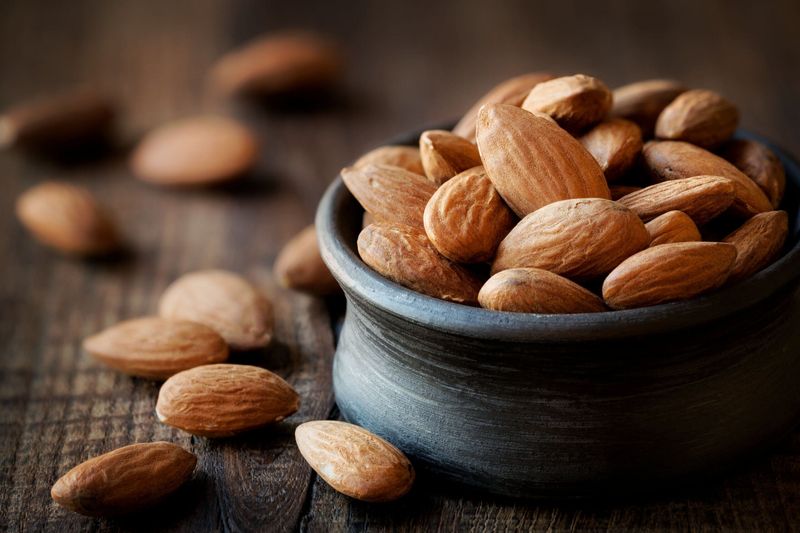

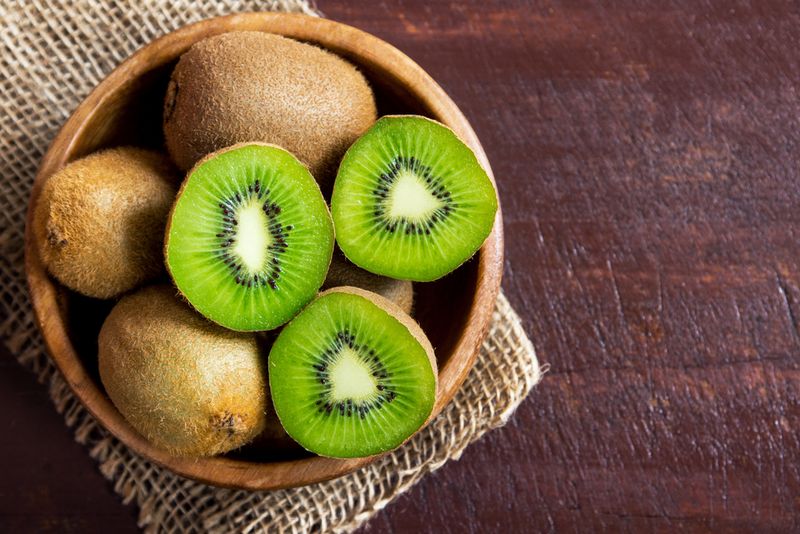
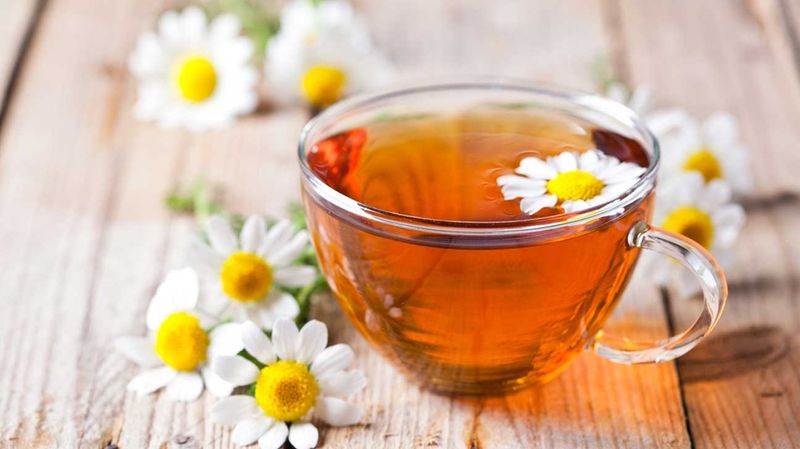

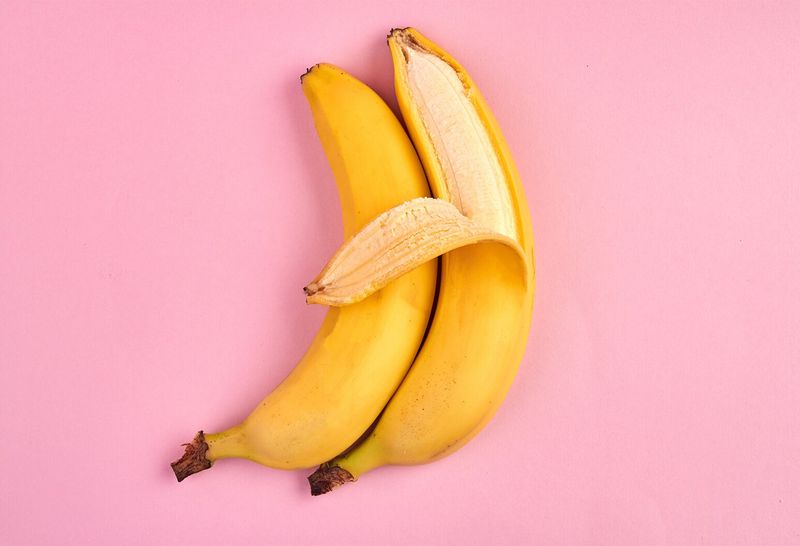
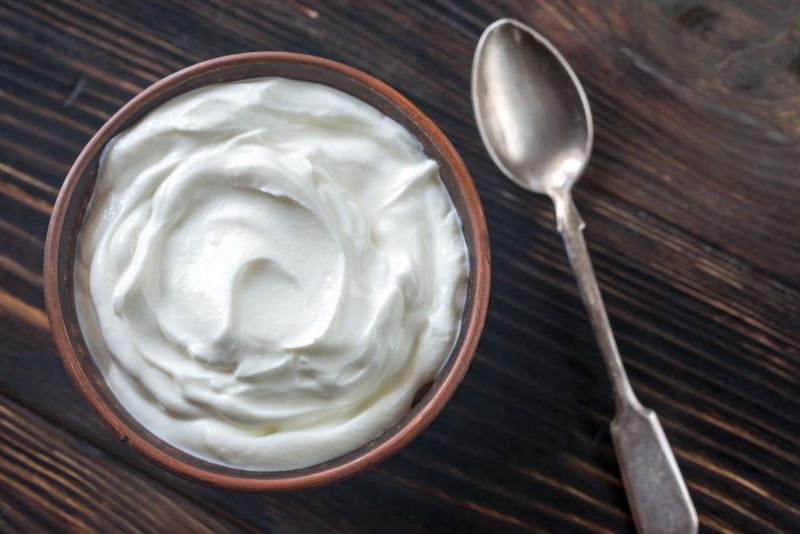
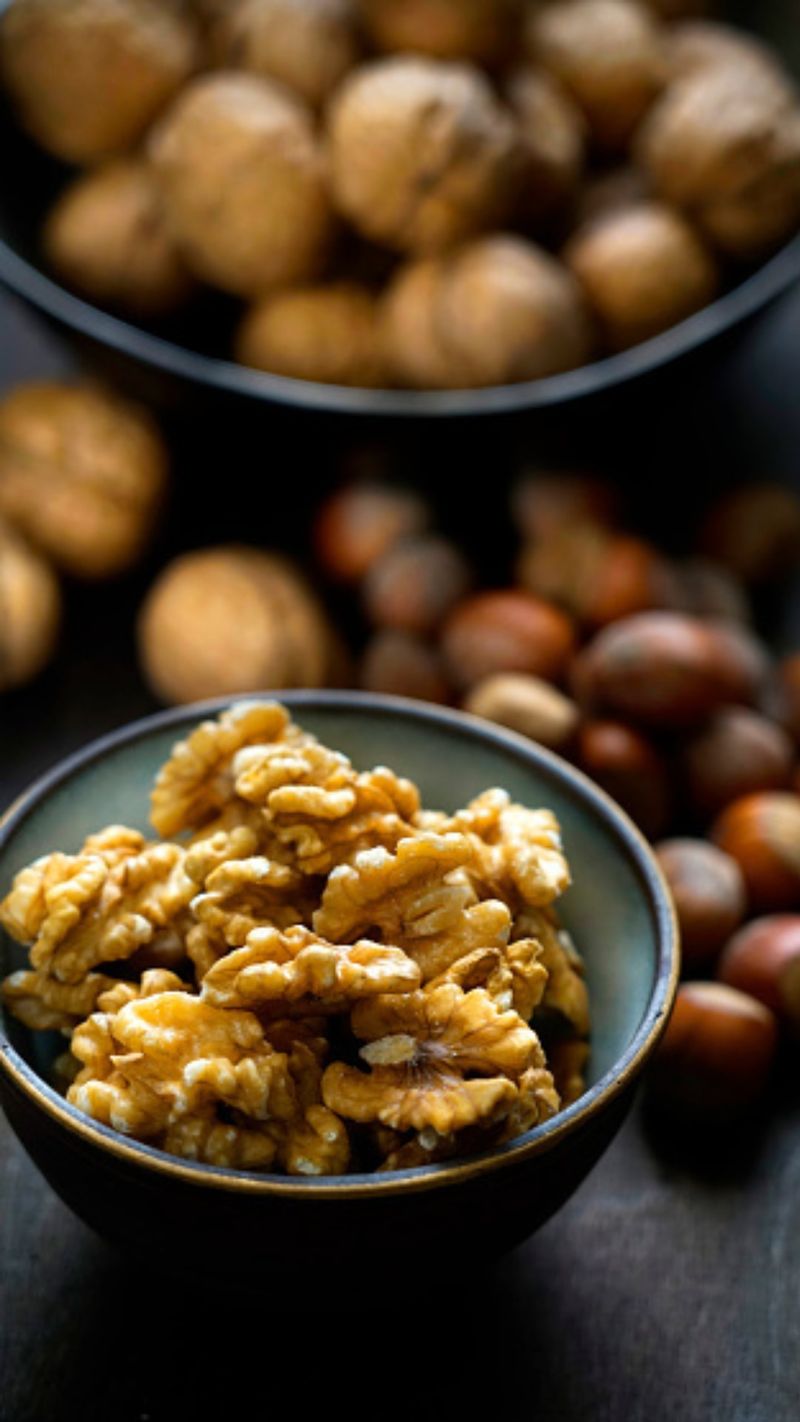
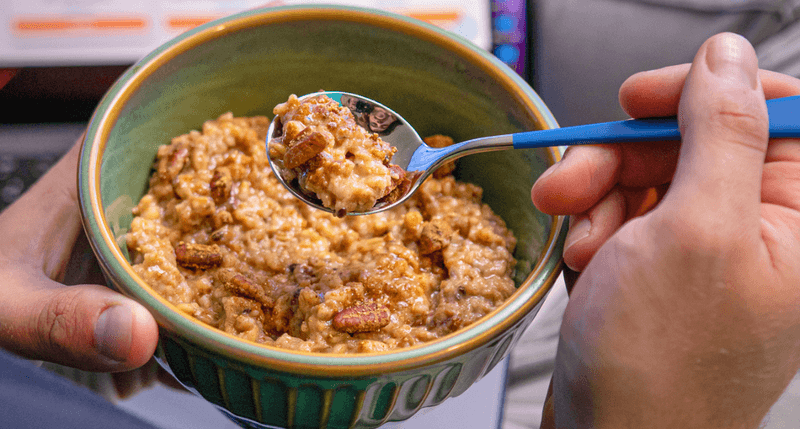
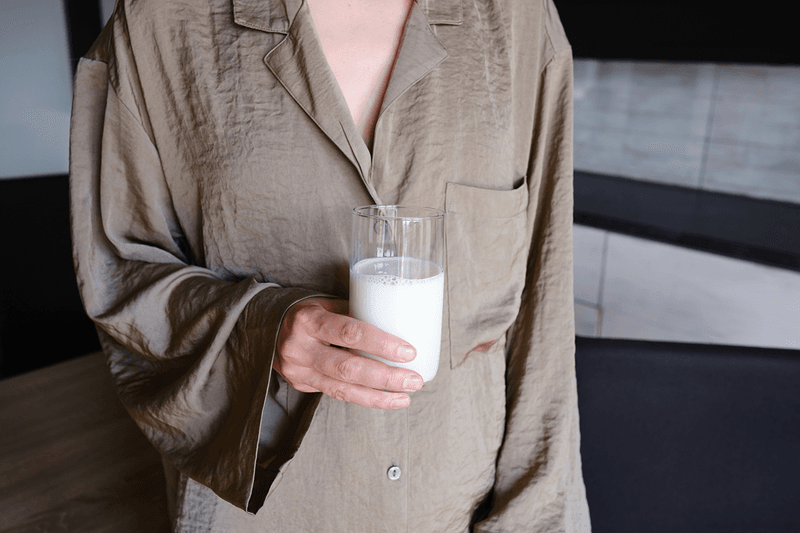
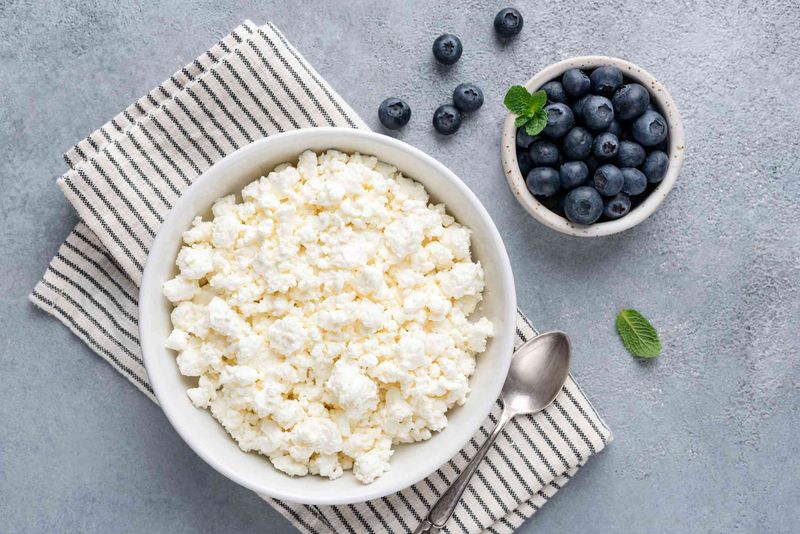






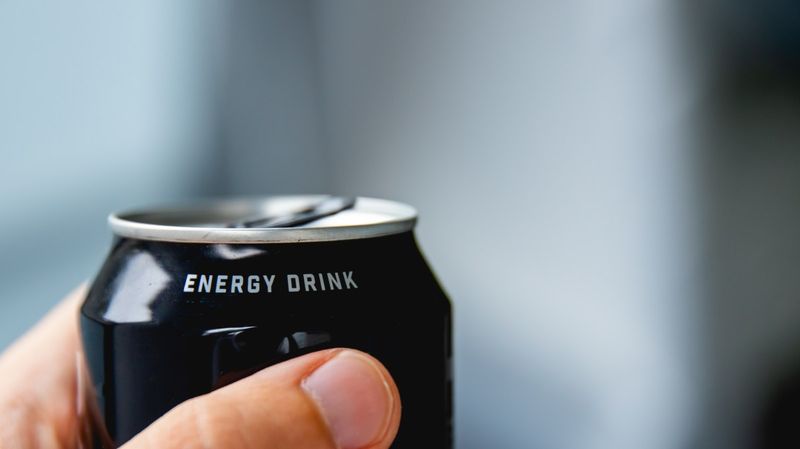



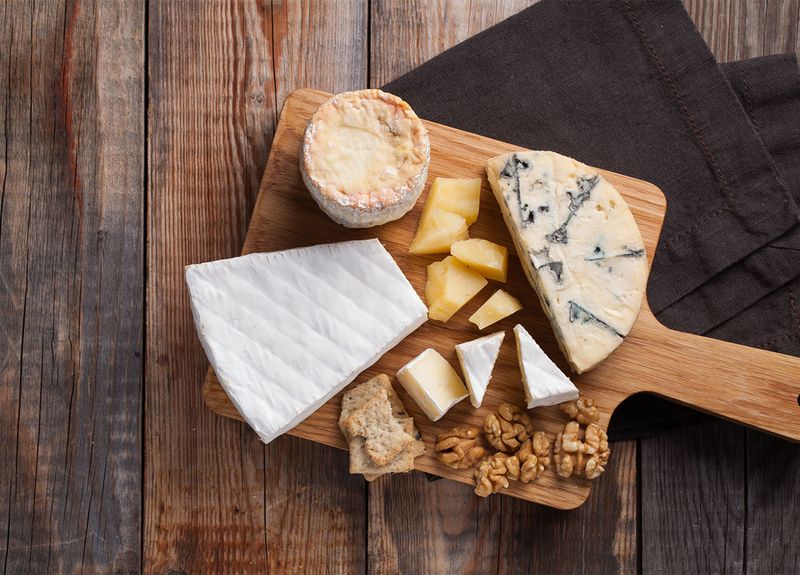

Leave a comment